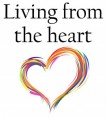Some of your most basic beliefs about love & intimacy are all wrong.
For over twenty years, I have worked with people from all walks of life, who get stuck in a cycle of pain, disappointment, finding it hard to sustain a healthy relationship. By changing your view of relationships and widening your perspective on intimacy, it creates an opportunity for relationships to not only survive, but thrive!
Love addiction, intimacy avoidant beliefs & patterns of behaviours;
- You feel disconnected from your sense of inner peace and happiness
- You fall in love easily and quickly, but have a hard time coping with long term relationships
- You neglect yourself and have distorted thoughts about the relationship
- You fear intimacy because you think you will be drained, engulfed, or controlled.
- You feel disappointed – that you have not found the right person.
- When attraction fades, you lose interest and neglect your relationship.
- You jump from one relationship to another in search of a wonderful feeling you once had
- You value instant attraction, rather than meaningful connection
- When you bond with someone, you find it impossible to let go
- You fantasise about love – your ideal partner you hope to meet, or a previous partner whom you once loved
- When you are in love, your fantasies distract you from important, everyday tasks
- Your relationships with family and friends suffer when you are in a romantic relationship
What causes love addiction or avoidance of intimacy?
It is hard to feel love when you are angry. Happiness depends on the quality of your inner life, your thoughts, emotions, beliefs and desires when directed towards finding inner peace and love. In essence, you might develop addictions or avoidance to shield yourself from love, or painful feelings. Suffering with negative, inflexible thoughts and emotions, fraught with anger, resentment and criticism, experiencing a loss of connection, perhaps not having experienced hope or love for a long time. You might expose yourself to a serious emotional vacuum and mistake intensity in a relationship for intimacy and love.
The causes are fairly easy to identify: a history of abandonment, inadequate or inconsistent nurturing without proper bonding, or a lack of emotional connection with a parent rooted in a mature, stable place that nurtures and supports a child. No consistent positive role models of loving relationships. Holding unrealistic fantasises, values and beliefs about love. People struggle with an unconscious fear of of both abandonment and of intimacy.
A quintessential characteristic of avoidance is a person who, consistently keeps an emotional and mental distance from their partner, feels overwhelmed by their partners’ desire for closeness, feels stifled by thoughts or pressures of vulnerability, they rely on escape, through distancing strategies. A person who is blocked from love, both desires and fears relationships, because they did not have a connection in childhood that comforted them, from fear or the emptiness of abandonment, they did not learn that relationships can be healing. People, often create intensity outside of their relationship, to relieve feelings of disconnection and unhappiness.
Conscious Fear Unconscious Fear
Love Avoidant
Intimacy Abandonment
Love Addict
Abandonment Intimacy
Emotional Growth & Intimacy
People who lack emotional maturity, find it hard to deal with their emotions and challenges in life. This is very painful; relationships are often short lived; they find it challenging to maintain relationships of any depth. Compromise is almost impossible, their capacity to understand or respond to another person is limited. They find emotions difficult to handle. In an attempt to avoid feelings, they control their world by creating an idealised version, being extreme in their behaviour, or having black and white thinking. Over coming this mind set is an important part of growing emotionally, which involves learning to develop coping strategies and relationship skills.
Relationships are places where this wound shows up. When you are not in a relationship, you can navigate life on your own terms, addressing your needs and wants. You are rarely confronted by the needs of another person in a meaningful way or need to listen to or contemplate someone else’s experiences. You feel in control, most of the time. When you become involved, you are forced to deal with another persons’ desires and needs. You may struggle and blame other people for your problems, situations or circumstances, for your feelings of anger, sadness and depression, without looking within.
Mr. Brand’s thoughts about Love addiction;
‘At the root of all addiction is narcissism, a constant thrumming attention to self. If you are self-absorbed you are suffering, and if you suffer you seek ways to stop it — through drugs, alcohol, sex, maybe Facebook “likes.’
He goes on to say;
“We are trying to solve inner problems externally — whatever it is in our lives that is missing,” he said. “Eckhart Tolle said it perfectly: ‘Addiction starts with pain and ends with pain.’ Here’s the point. Drugs, booze, sex … It’s not the particular addiction that matters as much as the fact that your life is out of control because of it.
Healing Relationships from love addiction or avoidance of intimacy is a process of self discovery and emotional growth.
Growing emotionally involves; breaking through denial, acknowledging repetitive patterns, owning harmful consequences of behaviour and thoughts, and interrupting the cycle. Only then is it possible to let go and address the underlying emotional pain at the core of this disconnection. If you avoid intimacy, you run away from difficult emotions. Learning to become present and aware of your feelings is important. Have you ever met a person who is sincerely concerned for your well being and is there for you when you need them? This is a compassionate, empathetic and loving person. For some, this comes naturally, for others, it takes work. Empathy is not the same as compassion. You can be compassionate with someone but able to fully understand what they are going through.
When you feel something strongly; struggle, loneliness, self criticism, or insecurity, face it head on. Look at the situation, determine what is making you feel that way, and decide what positive steps you will take next.
A solid relationship with a skilled psychotherapist trained in working with relationships, love and sex addiction can help guide you towards a sustaining a conscious loving relationship.

